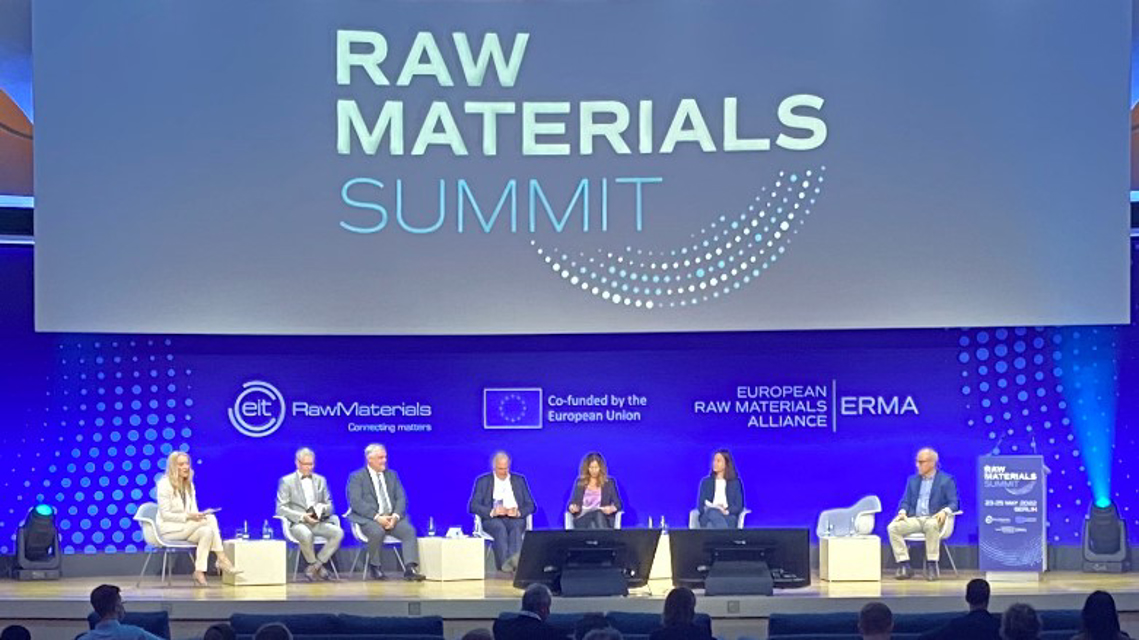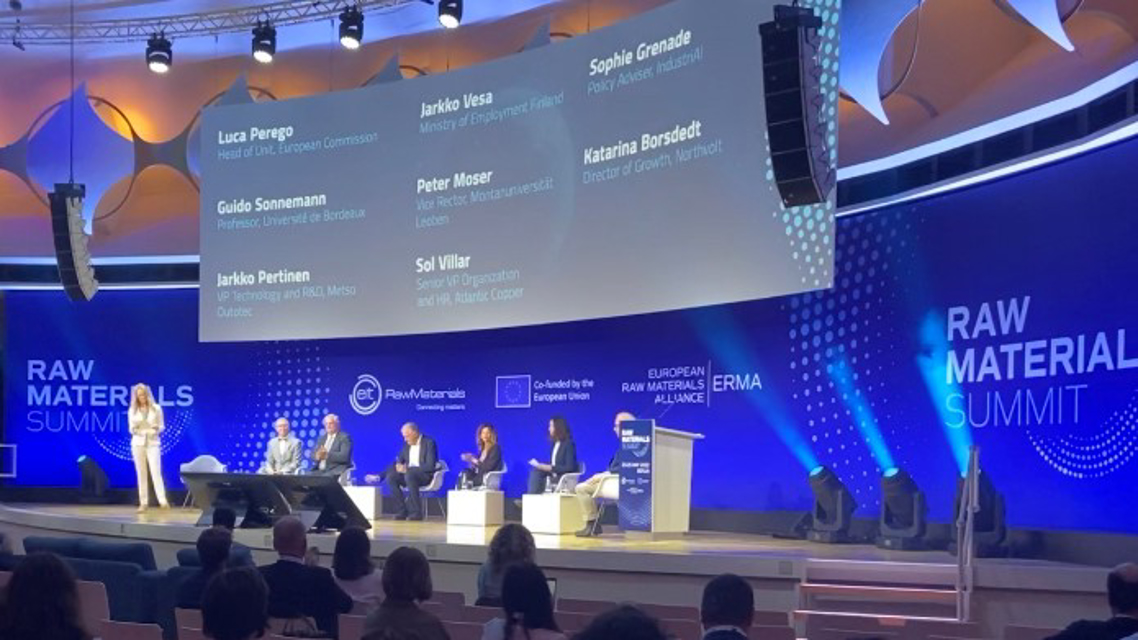IndustriAll Europe addressed the 4th Raw Materials Summit in Berlin, contributing to a panel debate on how to develop the skills and talent needed for a carbon neutral European raw materials industry.
Mineral raw materials are essential for the manufacture of green technologies. Whether we are talking about the lithium needed by the automotive industry to produce electric vehicle batteries, or rare earths for building wind turbines that will supply the chemical industry with green energy to produce medicines, securing a sustainable raw materials supply in Europe is vital to meet our climate goals and a key concern for industrial workers.
The raw materials sector provides around 350,000 jobs in the EU and over 30 million in the downstream manufacturing industries that depend on it, according to the European Economic and Social Committee. The European Commission estimates that moving towards a more circular economy could bring a net increase of 700,000 jobs in the EU by 2030. From opening new lithium mines in Europe, to the creation of large-scale facilities for battery cell production, or the recycling of key raw materials, developing new skills will be a huge challenge. There is a continuous need to train, upskill and reskill workers, including fossil fuel mining professionals.
At the Summit, industriAll Europe emphasised the scale of the skills challenge. To reach the EU’s battery ambitions, for example, some 800,000 reskilled and upskilled workers are needed, according to the EU Battery Alliance.
For industriAll Europe, it is crucial that workers are equipped to face such major transformations. This involves anticipating and identifying skills needs, as well as strategic jobs and skills planning at company, sector and regional level. Social partners, VET providers and public authorities must be closely involved in this process: Nothing about us without us! It also involves an individual right to training and to paid educational leave for each worker. It will be important to focus on young and prospective workers, as well as the current workforce. A Just Transition implies that nobody should be left behind.
IndustriAll Europe also insisted that skills policies need to be integrated in a broader industrial strategy, developed with the close involvement of social partners. The European raw materials strategy has the potential to support and create jobs, secure the supply of raw materials and deliver a circular economy. Trade unions must be actively involved in the co-creation of industrial policies to ensure just and fair transitions that leave no one and no region behind.
The Summit, which is the industry’s flagship conference, was attended by 600 participants from industry, governments, NGOs, research and development, and academia. It was organised on 25 May 2022 by EIT RawMaterials, the EU’s leading partnership on raw materials.
IndustriAll Europe's recommendation for 'Critical Raw Materials Resiliance': EN, DE, FR
Contact: Andrea Husen-Bradley (press and communication), Sophie Grenade (policy adviser)

